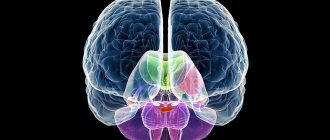Mechanisms of stress, Consequences of stress, Prevention of stress Irina Vasilyeva Over the centuries, women have experienced a lot of severe stress. Previously, these were burning huts and galloping horses, now they have been successfully replaced by numerous other difficult situations, weighing heavily on fragile women’s shoulders. According to the classical definition, stress is a person’s reaction to any events that exceed his adaptive capabilities. But what if this person is a beautiful representative of the fairer sex? How to reduce symptoms of stress in women?
Good afternoon, dear reader! The condition that occurs in a woman after stress is different from the male reaction. And this is not surprising. Women are different from men both physiologically and psychologically. Experiences of stressful events, both small (a quarrel with a friend, a reprimand from a superior, a child’s rudeness) and large ones (disasters, losses) differ markedly among representatives of different sexes.
Symptoms of stress and depression
Although stress and depression are different in nature, their manifestations can be quite similar.
In the mechanism of development of stress, there are 3 stages, which differ in their manifestations:
- Stage of anxiety (mobilization of body resources). At this stage, the stress factor has not yet affected the body, but has already indicated its potential danger. Since human resources are limited, at this stage the body prepares for the upcoming struggle, accompanied by the experience of anxiety.
- Resistance stage. There is an active fight against the stress factor. At this stage, everything can end if the stress factor is successfully overcome or avoided.
- Exhaustion stage. It occurs at the moment when the body’s resources have been exhausted and it can no longer continue to resist. It is at this stage of stress that there is a connection with depression. After stress, depression can occur, and the type of stress factor involved is not so important: depression can occur both from harsh living conditions and from severe mental shock.
Typical signs of stress and depression are:
- depressed mood, which does not change depending on the action of external factors (for the diagnosis of depression - at least 14 days of low mood);
- loss of interest in everything that was previously pleasant (thoughts focus mainly on the traumatic event or one’s own existence);
- a constant loss of strength that is not corrected by sleep or physical activity.
If a stressful state turns into a clinical form of depression, then the following signs are also observed:
- changes in weight and appetite (significant decrease or increase);
- changes in sleep patterns (the patient sleeps too little or too much);
- changes in activity (lethargy or manic, excessive reactions);
- inadequate feelings of guilt, decreased self-esteem, constant thoughts and statements about one’s worthlessness;
- disturbances in thinking or confusion or absent-mindedness, excessive slowness of thinking, sometimes affecting slow speech);
- thoughts, hints, statements, fantasies about suicide (or about cessation of existence, as a passive form of suicide).
All these signs can be carefully masked by those suffering from a depressive disorder, but over time the disease begins to reveal itself in statements, decreased performance or appearance (depressed patients usually look sleep-deprived, tired, lethargic, quickly stop taking care of their clothes and appearance, and even hygiene ).
Stress management
Chronic stress - ways and methods of dealing with it should be aimed at eradicating this “enemy” from your life. Therefore, the main goal of the struggle is to become a stress-resistant, integral and healthy person who is not subject to the constant anxiety that accompanies stress. It is a known fact that people who are under chronic stress for more than six months and who do not take any measures to improve their condition begin to get very sick, psychosomatics gets involved and at this stage it is already difficult to cope with stress without the help of a specialist.
To understand how to deal with severe stress, it is important to know that there are many types of stress, and therefore you need to get rid of it based on what caused this stress. For example, information stress, when a person is bombarded with tons of information from everywhere, mostly of a negative nature - the type of struggle will be to “switch off” oneself from as much information flow as possible: stop reading newspapers, watching the news, limit your time on social networks. Conventionally, types of stress management can be divided into:
- preventative or prophylactic - all methods are aimed at preventing stress before it occurs;
- primary and secondary types of preventive measures aimed at eliminating existing stress.
Numerous techniques and methods of dealing with stress will be successful only when the individual is aware of all the negative consequences of constant stress. After all, what is stress? Enormous tension, the involvement of the entire homeostasis - all the cells of the body work in emergency mode, so the question of how to deal with tension and stress can only be answered comprehensively. To do this, you need to completely reconsider your lifestyle.
Isn’t it the dream of many people to have a favorite job? But even the work of a lifetime does not guarantee the occurrence of stress, and if a person does not like his job and every day with great effort he persuades and literally drags himself by the scruff of the neck to the workplace with the hope of a bright future that will work, but for some reason it does not come, and severe depression sets in unnoticed.
Methods of dealing with professional stress:
- Working in multitasking conditions - if there are a lot of tasks, you need to arrange them in order of priority and this will be more effective, because the psyche will not work in emergency mode.
- Business before pleasure! Develop a certain rule - do a certain amount of work, treat yourself to coffee, relax.
- Get rid of excessive self-criticism - those who do not work are not mistaken. Be kinder to yourself.
- Upgrading other areas of your life - work cannot be one huge meaning. Interest in life in its various manifestations is the key to stress resistance.
- Healthy lifestyle. Adequate physical activity, good sleep and proper nutrition work wonders.
How to deal with nerves and stress? Pull yourself together and remember that the road will be mastered by those who walk. Every person, if he carefully looks and analyzes his day, will notice that a lot of time is spent on unnecessary things, empty conversations, and disappointment arises. Planning your day is a great way to eliminate unproductive tasks.
Depression is an indicator that the psyche needs rest and reset, and a review of its lifestyle. How to deal with depression and stress if nothing makes you happy and you give up? It is not always possible to cope with this condition, so it is important to ask your loved ones for help, to tell everything that is happening to you, if suicidal thoughts arise, then this also needs to be voiced.
To get out of the stupor of depression and chronic stress, you can try the following things:
- slow walks alone or with a close friend, choose a picturesque place, a park or an embankment for this;
- simple actions: ironing clothes, replanting flowers, looking at photographs - help to tune in to the life that is still happening around;
- turning to a specialist - accepting your defeat in the fight against stress and depression is also an important understanding; a specialist will help you choose medications if you need them.
Effectively dealing with stress and anxiety includes many components, but stress itself can be an accompanying sign of neurosis, and without the help of a specialist it is difficult for the person to cope. How to deal with stress and accompanying anxiety? More often, anxiety arises as a reaction to the uncertainty of the future, but if you analyze and understand that the future has not yet arrived, anxiety and stress are unproductive. It is important to tell yourself: “There is a present moment and everything is fine now, and tomorrow will be the same as I make it today.”
The principles of dealing with stress are based on the postulate that it is easier to prevent than to pull yourself out of prolonged stress. Prophylactic (preventive) methods include the following:
- proper sleep, rest;
- regular physical activity;
- staying in the fresh air;
- proper nutrition, rich in vitamins and minerals;
- ridding your place of residence of trash and unnecessary things;
- buying a beautiful thing;
- creativity, hobby;
- meetings with friends.
What types of stress exist
We rightfully give the palm to psychological stress . The fair half is most susceptible to it. Single, unmarried ladies and housewives encounter it. Everyone has different reasons, some experience loneliness, the absence of a man’s shoulder nearby, others, on the contrary, are tired of the routine of family life, lack of understanding on the part of their significant other.
Second in line is emotional stress , do not confuse it with psychological stress. This type of stress occurs during sudden changes in life, such as moving to a new place of residence, marriage, financial difficulties, or the death of a loved one.
In third place is physiological stress . This stress occurs when the functioning of the female body changes: painful menstruation, menopause, pregnancy.
Treatment of stress and depression
Treating stress and depression are not entirely compatible concepts. As described above, these conditions have different origins and only one of them is painful. Stress cannot be cured because this condition is normal for the body. You can only treat the painful consequences of stress if the nervous system cannot cope with them on its own.
If the consequence of stress is a depressive state, it is important to create suitable conditions for the psyche in order to prevent this state from turning into depression. Here are some effective methods on how to overcome stress and depression:
- After experiencing stress, it is important to give the body enough strength to recover. This does not mean that you need to uncontrollably “reward” yourself with food and sleep. A couple of days full of hedonism is enough: allow yourself to sit back and sleep, but only for a couple of days! Then you should establish a strict eight-hour sleep schedule with falling asleep and waking up at the same time, light physical activity, moderate nutrition with plenty of vegetables and walks in the fresh air.
- Fill your days with positive emotions. But be careful: excessively violent joy depletes the body in the same way as grief. Add some pleasant entertainment to your list of daily tasks, meetings with friends, gatherings with family, or pleasant solitude in nature - depending on what brings you more pleasure.
- Limit loads. This applies to both mental and physical work. Be consistent, distribute your responsibilities over time, and do not burden yourself with new stress factors.
- Share your feelings with loved ones. Sometimes, in order to get rid of negative emotions, you need to express them. A sincere conversation with a sincere expression of your feelings will help you get closer to mental balance.
There is an opinion that meditation helps with depression and stress. This is wrong. Meditation is a spiritual practice, part of a long and deep spiritual journey. This is not a five-minute way to relax. In an unprepared person who is in an unstable state of mind, meditation can cause even deeper depression with psychotic manifestations (the “dark valley” phenomenon). Therefore, one should begin to meditate only under the guidance of an experienced practitioner and only in a state of calm mind.
These were examples of how to get rid of stress and depression at home. Let us make a reservation once again that this applies to mild, preclinical forms, which go away on their own when conditions are created that are comfortable for the person. If symptoms of depression and stress have been bothering you for more than a month, their intensity does not decrease, but remains constant or steadily worsens, then it’s time to seek help from a specialist.
One of the specialists who knows how to get rid of stress, depression and anxiety is Nikita Valerievich Baturin, a psychologist-hypnologist. The specialist conducts both face-to-face and online consultations. By consulting with him, you can assess the seriousness of your condition and the need to continue treatment with a medical specialist, as well as learn how to get rid of stress and depression using psychological methods.
However, you should not think about how to treat stress and depression at home if you have thoughts or statements about suicide, or if there are clinical signs of depression (mentioned above). In this case, delaying visiting a doctor is dangerous for the life of the suffering person.
Features of female stress
The experience of stress by men and women is radically different.
It is psychologically easier for a woman to allow herself to be weak. When an unpleasant situation arises, it is much easier for a woman to seek help, admit her failure, defenselessness, incompetence, and ultimately cry.
But it is more difficult for a woman to allow herself strong feelings - to get angry, to fight back, to say a firm “no” where her boundaries are violated.
The male reaction to severe nervous stress is rather the opposite. This is isolation, withdrawal into internal experiences, switching to other types of activities.
Analyzing the external manifestations of stress reactions (crying, screaming, active gestures, etc.) it may seem that women are more susceptible to stress. However, it is not. It is thanks to bright reactions that it is somewhat easier for a woman to endure difficult situations.
In psychotherapeutic work, the appearance of an emotional response to a problem is considered a positive sign.
It is thanks to the competent experience of negative emotions, which many women intuitively possess, that the possibility of complete healing arises.
Of course, for this you need to understand yourself, your nature, in which feelings and the body play an important role, but not as familiar as our mind.
And our “cultivated” emotions, with which we can be in contact, do not interfere at all, as we used to think, but help to cope with stress.
You can read more about this in my book “How to allow yourself strong experiences, emotions and feelings without destroying yourself and others.”
How to overcome stress and depression?
Many experts write about how to avoid stress and depression. This formulation of the question is not entirely correct, since it is impossible to avoid stress throughout life: it is necessary for the development of the body, but depression cannot be avoided, because depression either develops as a result of the action of many factors (including predisposition to it), or not develops due to the favorable course of life and a special character.
It is much more important to know how to overcome stress and depression if you happen to encounter these conditions. In addition to the tips above, it is important to remain authentic to your nature (in other words, be yourself), have something you love (work or hobby), a safe place (a meeting place with friends or home), and also have support from loved ones.
In addition, an important point in how to get rid of stress and depression is the expression of hidden feelings. This could be a confidential conversation, journaling, or an outburst of emotions in art. Safe expression of emotions is the key to a healthy psyche.
If the matter takes on the features of a clinical condition, the question of how to get rid of stress and depression at home for an adult should not be relevant at all. A person responsible for his health, his mind and the safety of loved ones must decide to visit a specialist in a timely manner.
A psychotherapist and psychiatrist (only they know how to treat stress and depression using pharmacology) prescribe the necessary medications that can improve the patient’s mental state within a fairly short period of time. The main thing is to follow the dosage, adhere to the doctor’s recommendations and complete the prescribed course to the end.
Thus, the question of how to overcome stress and depression should be decided individually, depending on the severity of the condition of a particular person, his personal characteristics, social situation and many other nuances of his life. For everyone, this path takes different times and presents a variety of difficulties.
Related posts:
- What is deep depression, symptoms and treatment of pathology? Each of us has experienced symptoms of depression, when the emotional background significantly decreases and disappearance ...
- How depressive neurosis differs from depression, symptoms, causes and treatment of the disorder Various neuroses, depression are increasingly becoming constant companions of a person in difficult conditions...
- What is cyclothymia, symptoms, causes and treatment of the disorder When faced with unexpectedly sharp mood swings in our interlocutor, we most often attribute it to...
- What is depression, symptoms, causes and treatment of the disorder The term “depression” comes from the Latin language, where the word “depression” means depression. ...
- Why does postpartum depression occur and how to cope with it? With the birth of a child, family life changes dramatically. The new person becomes the center of attention. ABOUT…
Giving general recipes is a thankless task. Contact a psychologist: everyone’s situation is different and you as a person are unique, so the solution to your problem will also be unique, but if you limit yourself to the “glossy” advice that psychologists give in magazines, here they are:
- Eat an orange. Citrus fruits will help us in the fight against stress. They contain a lot of vitamin C, which fights fatigue and apathy.
- Play sports. An easy twenty-minute jog, 100 squats, leg swings - choose what you like and do it! After 20 minutes, a large amount of endorphins will enter your body and your stress will be relieved!
- Drink some water. Dehydration is one of the main causes of stress in the body. The more water you drink, the easier it is for your body to cope with it.
- Positive attitude. Instead of thinking about your rude boss, imagine yourself on the seashore.
- Treat yourself to something delicious. Eat a couple of pieces of dark chocolate, you will certainly feel better. Just don't get carried away!
- Take a bath. On the way after work, be sure to buy relaxing bath salts or bubble bath.
- Book a massage. You can also choose the type of massage that is more attractive to you. From simple relaxing to therapeutic.
- Turn off your cell phone. At work, we often have to communicate with people with whom, to put it mildly, we don’t really want. Leave all calls and unauthorized interference to your free time.
- Meditate. Try to relax and not think about anything for 5 minutes.
Symptoms
The signs by which the female body signals the presence of distress are very diverse. I will tell you about the most common ones.
Changes in eating behavior
This includes
- eating stress food
- complete refusal of food,
- the appearance of “strange” taste preferences.
Take this point seriously. Analyze how many times a day do you eat not because you are hungry, but for any other reasons? Or maybe, on the contrary, you refuse to eat because you “have no time” or “nausea”?
Even the slightest change in nutritional needs can lead to serious consequences: anorexia or, conversely, obesity.
Violations of work and rest patterns, sleep problems
Drowsiness and difficulty concentrating during the day, insomnia at night, thinking about the coming day at night, maintaining dialogues in the mind with an invisible interlocutor - all this signals the presence of long-term stress of moderate intensity.
You may experience nightmares, heavy “sticky” dreams, after which you wake up even more tired.
By analyzing dreams, you can tell a lot about a person’s experiences. However, this extensive topic is worthy of a separate publication.
At the moment, my publication is being prepared, dedicated to the study of dreams and the emotions that cause them. I promise that as soon as the publication appears in print, my blog subscribers will be the first to know about it.
Somatic manifestations
Pain of unknown etiology, including headaches, panic attacks, decreased immunity, cardiovascular disorders and problems in the gastrointestinal tract. Constant stress not only contributes to the emergence of diseases, but also aggravates existing chronic diseases.
The emergence of bad habits
To minimize the effects of stress, it is common in our culture not only to “eat stress,” but also to “wash it down.” By the way, it is the argument “drink and everything will pass” that is often heard among less educated segments of the population as a counterweight to psychotherapeutic work with a specialist.
Unfortunately, the myth that alcohol and other substances that affect consciousness are effective against stress still successfully wanders in the heads of our compatriots. However, it has long been proven that drinking alcohol, even in small doses, can only add difficulties to everyday life, but does not solve them.
Personal changes
Women are much better at multitasking at home and at work compared to men.
But at the same time, she often stops noticing that she has already taken on more than she can handle.
Long-term exposure to stress can lead to emotional burnout, in which our body seems to “save” resources.
There is a kind of blocking of emotions “until better times.”
When a person burns out, he becomes like a biorobot, meekly carrying out his activities without attaching feelings and emotions to it.
Another option for personal changes may manifest itself in an increase in the level of anxiety, aggressiveness, and a drop in self-esteem.
At the same time, a woman can become irritable, whiny, capricious, and demonstrative.
Neither option is better than the other. Both of them lead to a deterioration in interpersonal relationships in the family: with children, spouse, parents.
Ways to deal with stress
There are many ways to deal with stress, but what works for one person may cause frustration or greater stress for another. There is only one way out - choose methods for yourself, apply and see the result, this is the only way to get out. Individual ways to deal with stress:
- change in diet;
- inclusion in your schedule of exercises, or the physical activity that you like;
- handicrafts;
- meditation;
- autogenic training;
- breathing exercises;
- art therapy
Psychologists recommend starting to practice meditation to prevent or eliminate stress. All effective ways to deal with stress are aimed at harmonizing the internal state and meditation is a simple way to regain calm and get rid of chronic tension. Meditation practices for stress:
- Dynamic meditation, the creator of which is considered to be the sage Osho. Meditation will be useful for those who are used to getting rid of stress through physics (the body). Turn on rhythmic music. Take the position: feet shoulder-width apart, knees slightly bent and begin lightly shaking your head, arms, legs - 5 minutes. Then dance for 10 minutes. Listen to the music for the next 10 minutes. For the last 10 minutes you need to lie down in silence and listen to yourself.
- Meditation-relaxation. Lie on your back in the dead man's pose - savasana. Relax, inhale through your nose and hold your breath for 3–4 seconds, then exhale, imagining how all the accumulated negativity goes away. Do several such cycles.
Nutrition largely determines a person’s well-being. How to deal with stress through nutrition and is it effective? Yes, scientists are interested in developing techniques to combat stress through nutrition. The so-called anti-stress diets have already been appreciated by many people suffering from chronic fatigue and stress. What foods should you include in your diet when you are stressed?
- all vegetables and fruits that have an orange color (oranges, tangerines, pumpkin, apricots (dried apricots), carrots) - the bata-carotene they contain and vitamins A and C help the psyche cope with daily difficulties and trials;
- berries (cranberries, lingonberries, blackberries, sea buckthorn, cherries) - a mix of these wonderful gifts of nature can invigorate the most tired body, promotes the production of serotonin, the hormone of joy;
- seaweed - regulates hormonal metabolism, and hormones are mood stabilizers, natural iodine gives stamina and performance;
- nuts (walnuts, pine nuts, cashews, almonds) are a storehouse of polyunsaturated acids, a source of B vitamins, without which the nervous system cannot function normally;
- red fish (salmon, sockeye salmon, trout) - reduces the level of cortisol, a hormone produced by the adrenal glands during stress.
The famous Dagestan psychiatrist and philosopher Khasai Aliyev created a unique technique of psychophysical self-regulation “Key”, it was developed for cosmonauts under constant stress conditions. Techniques for dealing with stress in the “Key” system are simple and effective. These are 6 basic ideomotor movements, repeated several times:
- “Arm divergence” - hands in front of you, you can close your eyes and imagine that your hands diverge to the sides without any effort, your hands will begin to move.
- “Convergence of hands” - spread your arms to the sides, then do it mentally, ideomotor, feel the internal connection of thought and automatic movement in response.
- “Levitation of the hand” - hands are lowered, look at your right or left hand and mentally give it the command to smoothly rise and fall; it is better to do the exercise with your eyes closed.
- “Flight” - let your hands float up one by one like wings and control the flight through an effort of thought, a surge of strength will begin.
- “Self-oscillations of the body” - it comes by itself after performing the exercises described above, trusting the body and swaying.
- “Head movements” - start lowering, raising, rotating your head and try to do it ideomotorically, if initially it doesn’t work, then relax and rotate through effort, but smoothly, without tension.
There are also creative ways to deal with stress - modern psychology calls these methods art therapy. What areas of art therapy help with stress:
- modeling (plasticine, clay);
- drawing;
- fairytale therapy;
- games.
A very good method for dealing with stress is drawing a mandala. Before you start drawing, it is important to voice to yourself what you would like to work on, then relax and surrender to the creative flow. Draw a circle, you can divide it into several sectors (4,8,12) or freely start drawing in a circle with felt-tip pens, pencils or paints - use colors intuitively. The process itself helps to reach a harmonious state, anxieties go away, and negativity spills out.
Dealing with stress in the workplace or in everyday life should be done at a comfortable time, done as you go along, then it quickly becomes integrated into the flow of being. Breathing techniques are an organic and effective method that can be used during work breaks or at home. How to deal with stress using breathing step by step:
- Lie on your back or sit on a chair.
- Relax all parts of the body, starting with your toes and ending with the top of your head.
- Start deep breathing and count, go up to 10, then start over. Breathing returns you to the “here and now” state, thoughts become clear.
Now let's look at 8 effective methods to overcome stress and depression, and not allow negative emotions to control your life. Following them will reduce stress and help you cope better with daily problems.
Physical activity and yoga are one of the best ways to avoid and fight depression. This is a good natural method of relieving anxiety: during exercise, endorphins are produced in the brain in large quantities, which act in the body as painkillers (analgesics) and mood improvers (mood stabilizers).
Expert research confirms that physically inactive people cope worse in stressful situations. Because the body responds to stress with changes in the neuroendocrine system, exercise provides some protection against stress by regulating a number of metabolic and mental processes in the body, strengthening natural biorhythms, regulating the sleep/wake cycle, and stabilizing mood and glycemic levels.
In addition, physical exercise improves cell sensitivity to insulin, increases self-confidence, and leads to improved mental processing of information, which reduces the risk of depression.
Yoga has effects similar to those of physical exercise, strengthening the “mind-body” connection, allowing people (especially women) not to perceive the body too critically. Yoga improves sleep, helps get rid of anxiety and despondency. An analysis of more than 35 clinical studies examining the effects of regular yoga practice on stress levels and overall health of the body confirmed that for most people this practice leads to significant improvements in physical and mental indicators.
To enhance the benefits of exercise in reducing stress and depression, try playing relaxing music while exercising. Expert studies confirm that listening to a suitable melody has a positive effect on the psychobiological mechanisms of response to stress, promotes the activation of the parasympathetic nervous system, reduces recovery time after a stressful situation, normalizes hormonal balance, and improves brain functioning.
Meditation and healing prayer are two proven methods that help relieve accumulated stress, allowing people to cope with anxiety, depression, and find peace of mind.
The positive aspect of these methods to combat depression and stress is that they can be done at any time of the day. You can practice meditation on your own; It is recommended to pray alone. You don't need a therapist, a psychologist, or a special therapeutic program. Therefore, meditation and prayer are among the most popular methods of combating depression and stress.
The NSR (Natural Stress Relief) and MBSR (Mindfulness Based Stress Reduction) meditation methods are examples of 2 simple mental techniques that can be done 1-2 times a day for 10 days. 15 minutes. As a result, “awareness” improves, stress, depression, anxiety, and depression decrease.
However, there are other meditation techniques that can dampen the physiological stress response and improve mental alertness. They help people cope with a range of physical and mental problems such as anxiety, depression, mental disorders, concentration problems, drug addiction, sleep disorders, etc.
The effect of stress on a woman's reproductive system
The reproductive system is not involved in the stress response. However, it temporarily reduces activity, giving up energy to the systems that provide such a reaction.
Prolonged mental tension and stress are the most common cause of hormonal imbalance in the reproductive system 3. They affect the functioning of the pituitary gland and hypothalamus - the central organs of hormonal regulation - and inhibit the activity of the female reproductive system at various levels.
According to statistics, emotional stress causes up to 87.6% of all menstrual irregularities . The nature of the disorders depends on the severity of stress, ranging from hypomenstrual syndrome to amenorrhea. Moreover, treatment based on the elimination of emotional disorders leads to spontaneous restoration of normal menstruation in 40% of patients4.
With high levels of stress in women, prolactin levels often increase. Normally, this increase occurs during pregnancy and breastfeeding, but is also observed during stress, anxiety and depression. High prolactin suppresses reproductive function and can lead to amenorrhea, infertility, mastopathy, adenomas and cysts of the mammary glands.
Also, under stress, the level of progesterone and estrogen in the ovaries decreases, which can lead to chronic anovulation.
In addition, chronic stress suppresses the immune system, which increases the risk of the occurrence and chronic course of various infections, including those of the reproductive organs. In turn, the inflammatory process, being a stress factor, aggravates the decline in immunity. A “vicious circle” is formed.











